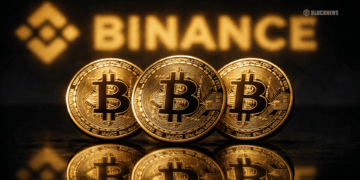- On June 9, 2023, the Commodity Futures Trading Commission (CFTC) won a lawsuit against Ooki DAO, fundamentally altering the legal status of DAOs.
- The decision categorizes DAOs as ‘persons’ under the Commodity Exchange Act, potentially paving the way for further legal consequences for these entities.
- The lawsuit has ramifications on over 12,745 DAOs, collectively controlling more than $20 billion in crypto assets.
In a landmark legal battle reverberating across the cryptosphere, the autonomous digital entity, Ooki DAO, was legally designated as a ‘person’ following its loss in a lawsuit against the Commodity Futures Trading Commission (CFTC). The June 9, 2023, verdict established new ground in interpreting the Commodity Exchange Act, casting uncertainty on the future legal status of DAOs.
In the vibrant and evolving cryptocurrency landscape, more than 12,745 DAOs exist, holding over $20 billion in crypto assets. The discourse around DAOs and their inherent decentralized structure has been central to countless debates since the first DAO’s notorious disintegration in 2016, which sent shockwaves through the Ethereum network. The prevailing understanding was that these entities’ collective ownership and decentralized framework render them exempt from legal repercussions.
Nonetheless, the triumphant legal stand of the CFTC against Ooki DAO has injected skepticism into this widely accepted concept. Ooki DAO has been under the CFTC’s scrutiny since September 2022, accused of breaching the Commodity Exchange Act. The charges stipulated that from June 1, 2019, to August 23, 2021, the DAO operated as a futures commission merchant (FCM) involved in illicit margined and leveraged retail commodity transactions.
Ooki DAO’s decision to disregard the accusations and miss the lawsuit’s deadline proved detrimental. Their silence culminated in Judge William H. Orrick’s default judgment on June 9. This declaration assigned legal responsibility to Ooki DAO for its actions, imposing a civil financial penalty of $643,542 and formally identifying it as a ‘person’ under the Commodity Exchange Act.
Ian McGinley, the director of the CFTC Division of Enforcement, stated that this ruling should alert anyone considering skirting legalities using a DAO structure. In his view, this awareness is especially pertinent given the current regulatory flux in U.S. laws in 2023. Industries ranging from commodities to securities are under intense examination, with the demarcation lines between things and guards within crypto assets growing increasingly indistinct.
Legal “Person” Status Reshapes DAOs’ Future
In light of the recent legal proceedings that marked Ooki DAO as a ‘person’ under the Commodity Exchange Act, fresh insights arise regarding the nature of a legal ‘person.’ This label denotes any individual or entity imbued with specific rights and responsibilities under the law, including the ability to enter into contracts, possess property, and the capacity to initiate or face lawsuits.
Applying this definition to commodity law, the ‘person’ status enables entities to buy and sell goods and services freely on the market. However, it also subjects them to specific regulations, such as tax and consumer protection laws. This status also holds them accountable for any damages resulting from their actions or negligence.
With Ooki DAO’s recent court verdict, this complex weave of rights and obligations that a legal ‘person’ carries under commodity law might be a future norm for DAOs. It implies new privileges for DAOs and a new realm of legal responsibilities that could shape the future of cryptocurrency entities.














